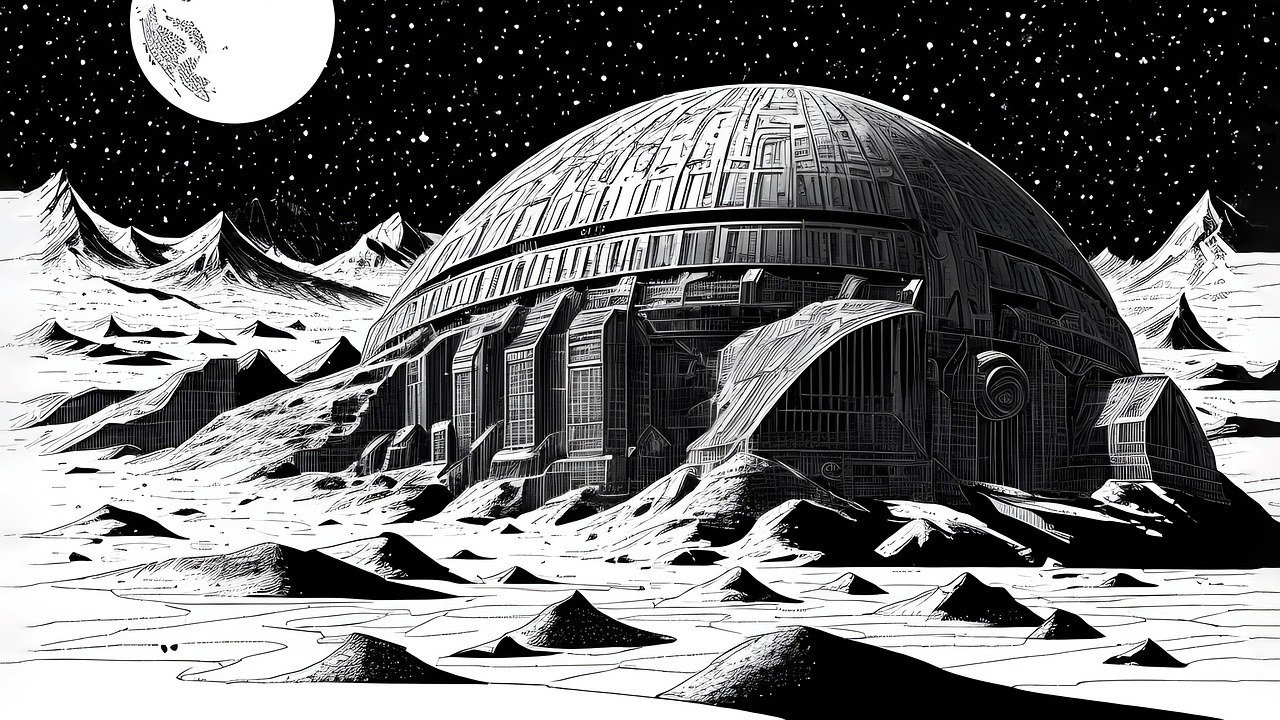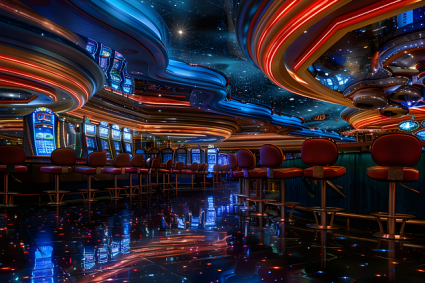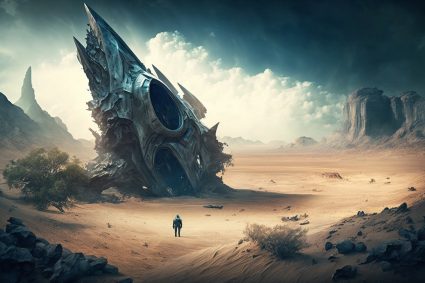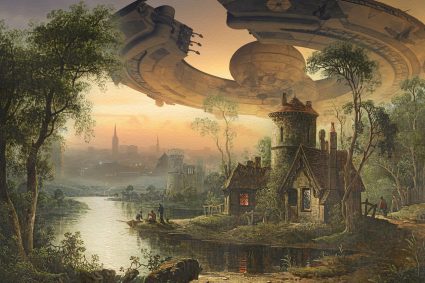
Science Fiction is a genre that has fascinated readers for decades, transporting them to far-off worlds and showcasing futuristic technology and scientific concepts beyond our wildest imagination. But what exactly is Sci-Fi literature, and what are its defining characteristics?
In this article, we aim to explore the definition and characteristics of Science Fiction literature, as well as its various sub-genres. From dystopian societies to interstellar travel, Sci-Fi offers endless possibilities for both readers and writers alike.
What is of Science Fiction Literature?
At its core, Sci-Fi is a genre that explores the impact of science and technology on society and individuals. It typically takes place in an imagined future, although it can also be set in the present or the past, and often involves alternative realities, other worlds, or extraterrestrial life.
Science Fiction literature is characterized by its imaginative and speculative nature, as well as its use of scientific concepts and theories. It often incorporates futuristic or advanced technology, such as time travel, artificial intelligence, or space exploration, and explores how these concepts might impact society and individuals.
Characteristics of Sci-Fi Literature
While Sci-Fi can be a diverse genre with many sub-genres, there are several characteristics that are common among most Sci-Fi literature:
Imaginative and Speculative: Science Fiction literature often involves imagining worlds, societies, and technologies that don’t yet exist. It explores the possibilities and consequences of scientific concepts and theories.
Scientific Concepts: Sci-Fi literature relies on scientific concepts and theories as a foundation for its stories. The genre often explores the impact of these concepts on society and individuals.
Futuristic or Otherworldly Settings: Sci-Fi literature is often set in the future or in alternative realities, other worlds, or parallel universes.
Exploration of Social and Cultural Issues: Sci-Fi literature often explores social and cultural issues, such as race, gender, and power dynamics, in imaginative ways.
Sense of Wonder and Exploration: Sci-Fi literature often evokes a sense of wonder and exploration, as characters discover new worlds, technologies, and possibilities.
Sub-Genres of Sci-Fi Literature
Sci-Fi literature encompasses a wide variety of sub-genres, each with its own unique characteristics and themes. Some of the most popular sub-genres of Sci-Fi include:
Hard Sci-Fi: This sub-genre focuses on scientific accuracy and realism, often exploring complex scientific concepts and theories.
Space Opera: Space opera is characterized by grand adventure, epic battles, and larger-than-life characters.
Cyberpunk: Cyberpunk is set in a dystopian future and often features advanced technology, virtual reality, and corporate control.
Post-Apocalyptic: Post-apocalyptic stories take place after a catastrophic event has destroyed civilization, often exploring themes of survival and rebuilding.
Alternate History: This sub-genre explores what might have happened if historical events had unfolded differently, often featuring alternate realities or time travel.
FAQs about Sci-Fi Literature
Q: What makes Sci-Fi different from fantasy?
A: While both Sci-Fi and fantasy often involve imagined worlds and technologies, Sci-Fi is typically grounded in scientific concepts and theories, whereas fantasy is not.
Q: Is Sci-Fi only for nerds or tech enthusiasts?
A: Not at all! While Sci-Fi often incorporates scientific concepts and theories, it can also explore a wide range of social and cultural issues and be enjoyed by anyone who is interested in exploring new worlds and ideas.
Q: Can Sci-Fi literature be considered literature?
A: Yes, absolutely. While some may dismiss Sci-Fi as “genre fiction,” it can be just as complex and thought-provoking as any other type of literature.
Conclusion
Science Fiction literature is a genre that has captivated readers for generations, offering endless possibilities for exploration and imagination. Whether you’re interested in futuristic technology, dystopian societies, or intergalactic travel, there’s a Sci-Fi story out there for you.
By understanding the definition and characteristics of Sci-Fi literature, as well as its various sub-genres, readers can better appreciate the diversity and depth of this fascinating genre. So go ahead, dive into a new world, and explore the limitless possibilities of Sci-Fi literature!




